Aqaba Meetings: Jordan leads fight against terrorism - By Hasan Dajah, The Jordan Times
In light of the escalating security and regional challenges facing the region and the world, the Aqaba Meetings initiative stands out as one of the most important Jordanian royal efforts aimed at strengthening international cooperation in combating terrorism and extremism. The latest round of these meetings, held in the Italian capital, Rome, confirmed Jordan's pioneering role, under the leadership of His Majesty King Abdullah, in supporting global peace and security. His Majesty chaired the meeting alongside Italian Prime Minister Giorgia Meloni, with broad participation from countries and international organizations concerned with countering terrorism.
The Aqaba Meetings initiative was launched nearly a decade ago with a forward-looking royal vision, providing a platform that brings together countries, organizations, and security and military institutions to exchange expertise and experiences and enhance coordination in confronting cross-border threats. Since their inception, these meetings have moved from Aqaba to numerous world capitals, such as Madrid, Tirana, and Washington, making them a global framework for joint security dialogue and the formulation of effective strategies to combat extremism in various regions of the world.
In the Rome round, the meetings focused on West Africa, which faces growing security challenges due to the spread of terrorist groups in some Sahel countries. Discussions centered on ways to enhance coordination between affected and supporting countries, including developing intelligence cooperation, information exchange, and strengthening local capacities in the areas of security and justice. Twenty-two countries participated in the meetings, in addition to representatives from international organizations such as the United Nations, the European Union, NATO and Interpol, reflecting the high level of confidence in Jordan's role and its ability to bring diverse parties together.
Recent reports indicate that the Sahel and West Africa region currently account for approximately 43 per cent of global deaths from terrorism, while sub-Saharan Africa accounts for approximately 51 per cent of global terrorism-related casualties. These figures reflect the magnitude of the threat facing millions of civilians in these regions. The number of victims has risen significantly in recent years, due to the increased activity of extremist groups such as ISIS in the Greater Sahara and the al-Qaeda-linked Jama'at Nusrat al-Islam wal-Muslimin (JNIM). Countries such as Mali, Niger, Burkina Faso, and Nigeria are experiencing repeated attacks targeting both civilians and military personnel, exacerbating the humanitarian and security crises in the region.
In this context, the importance of Jordanian efforts is evident in emphasizing that the fight against terrorism cannot be limited to military and security tools but must also include the intellectual and cognitive dimension through the "Theory of Intellectual Security," pioneered by Professor Hasan Al-Dajah. This theory is based on the principle that extremist ideology cannot be defeated by force alone, but rather by fortifying minds with awareness, knowledge, and sound thinking.
Intellectual security is a state of intellectual and social immunity that prevents the penetration of deviant ideas into the minds of youth and communities, and strengthens belonging and loyalty to the homeland, as well as the values of tolerance and moderation. Intellectual security is based on several key pillars, most notably developing education as a tool for building informed, critical thinking capable of distinguishing between authentic religious discourse and extremist calls; supporting purposeful media that promotes moderate discourse and responds to online disinformation campaigns; and empowering religious institutions to disseminate balanced fatwas based on moderation and contributing to the consolidation of a culture of dialogue and openness. Intellectual security also encompasses the role of the family, school, and society in providing sound upbringing and building collective awareness against advocates of hatred and violence.
The Jordanian leadership has realized that extremism is not born in a vacuum, but rather the result of an intellectual and moral vacuum. Hence, His Majesty King Abdullah II's directives to integrate the intellectual security approach within the general framework of the Aqaba Process initiative, so that discussions are not limited to field security alone but extend to combating extremist ideology at its roots. The battle against terrorism is, at its core, an intellectual and cultural battle before a military one, and it must be waged with knowledge, awareness, and the same determination with which it is waged with weapons.
The Aqaba meeting in Rome reflects the maturing of Jordan's comprehensive vision for human security, as global stability cannot be achieved without addressing the causes of extremism through the dissemination of moderate thought, development, and education. This integrated approach between intellectual, and field security makes the Aqaba Initiative a global model for dealing with the phenomenon of terrorism in a radical and sustainable manner. In doing so, Jordan, under its Hashemite leadership, affirms that it is not only a regional center for peace, but also a source of thought and humanity striving to build a more secure, stable, and just world.
Hasan Dajah is professor of strategic studies at Al-Hussein Bin Talal University
Latest News
-
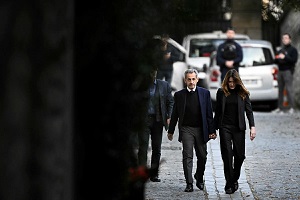 'Come back quick': Supporters cheer Sarkozy as French ex-leader goes to jail
'Come back quick': Supporters cheer Sarkozy as French ex-leader goes to jail
-
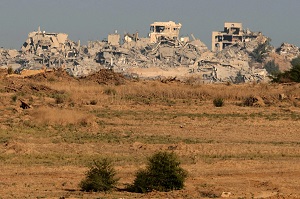 Trump says MidEast allies ready to 'straighten out Hamas' if asked
Trump says MidEast allies ready to 'straighten out Hamas' if asked
-
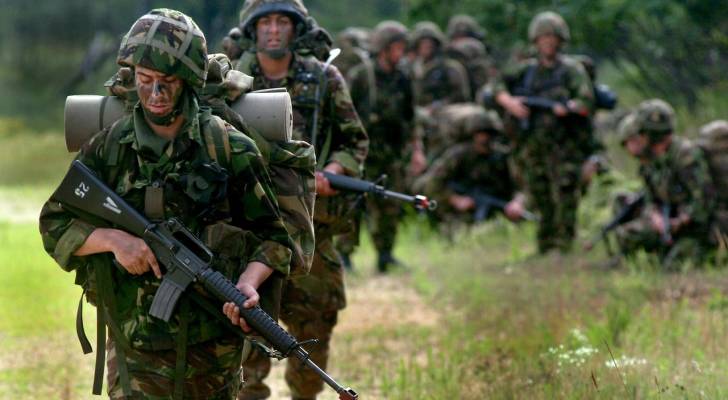 Britain deploys troops to 'Israel' to monitor Gaza ceasefire
Britain deploys troops to 'Israel' to monitor Gaza ceasefire
-
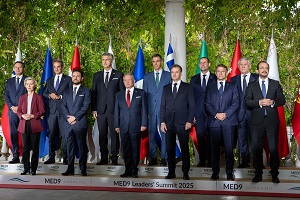 King attends MED9 Summit, calls for joint action to ensure commitment to Gaza agreement
King attends MED9 Summit, calls for joint action to ensure commitment to Gaza agreement
-
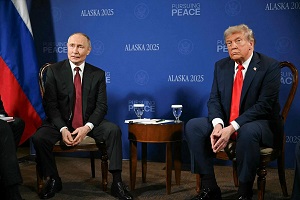 Lavrov and Rubio discuss Putin-Trump summit, Zelensky seeks invite
Lavrov and Rubio discuss Putin-Trump summit, Zelensky seeks invite